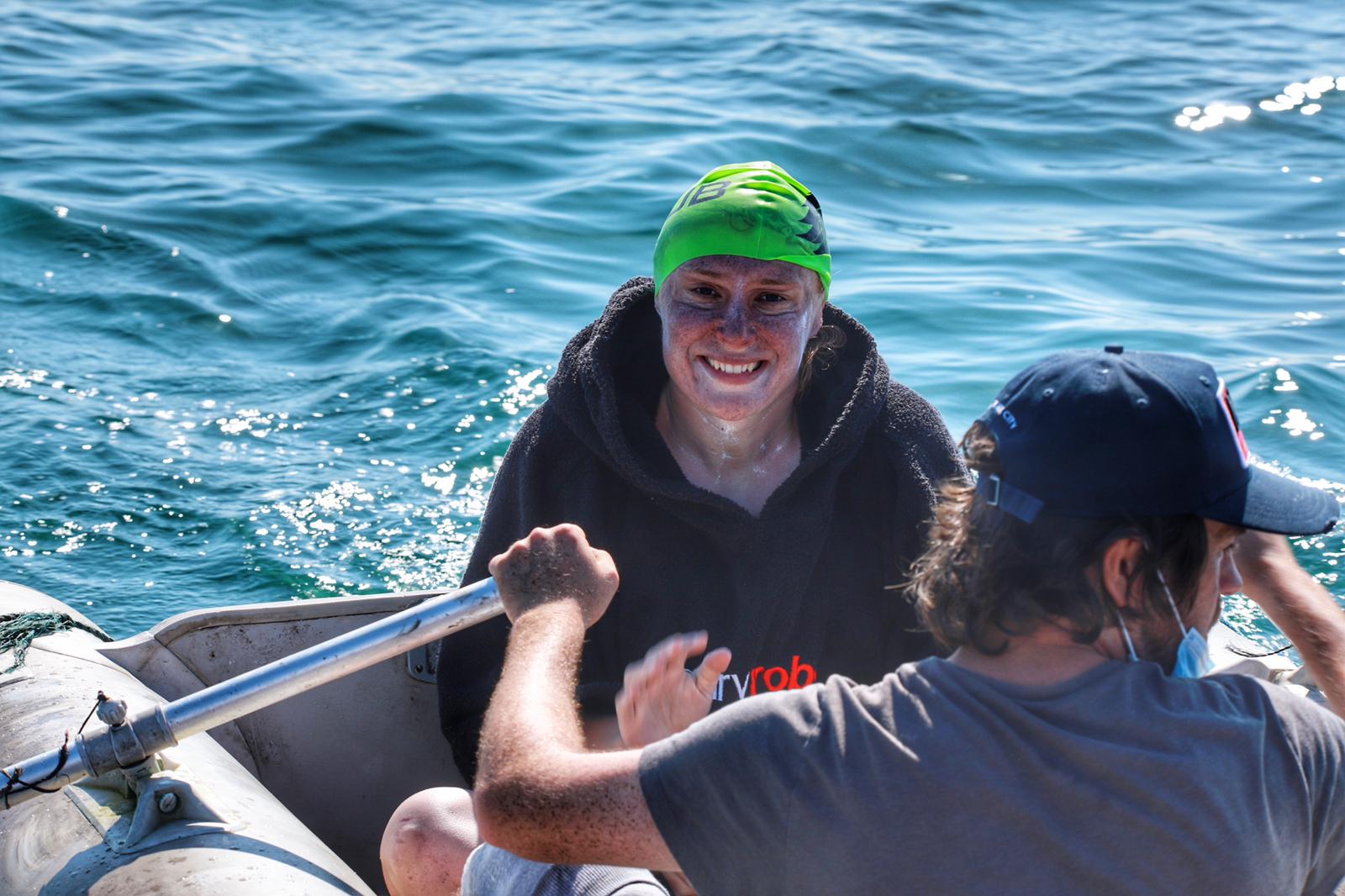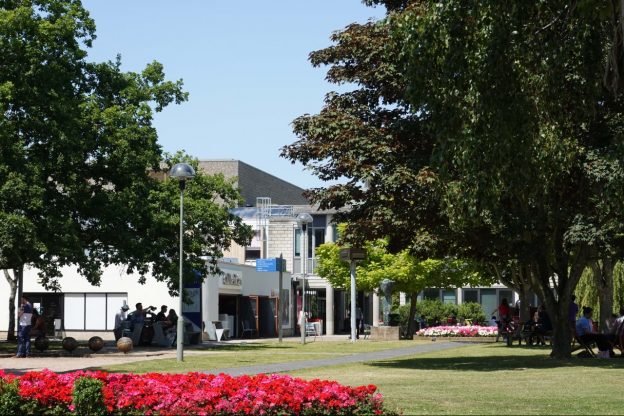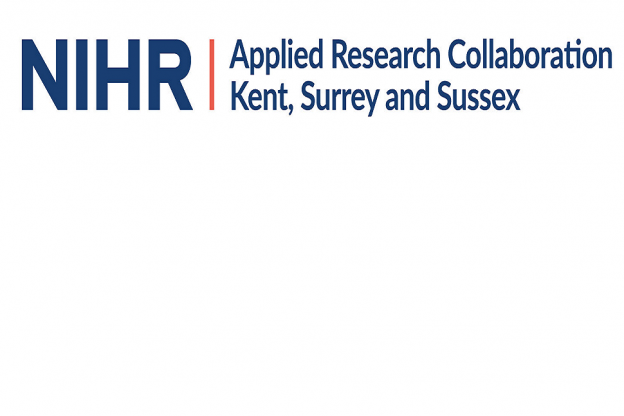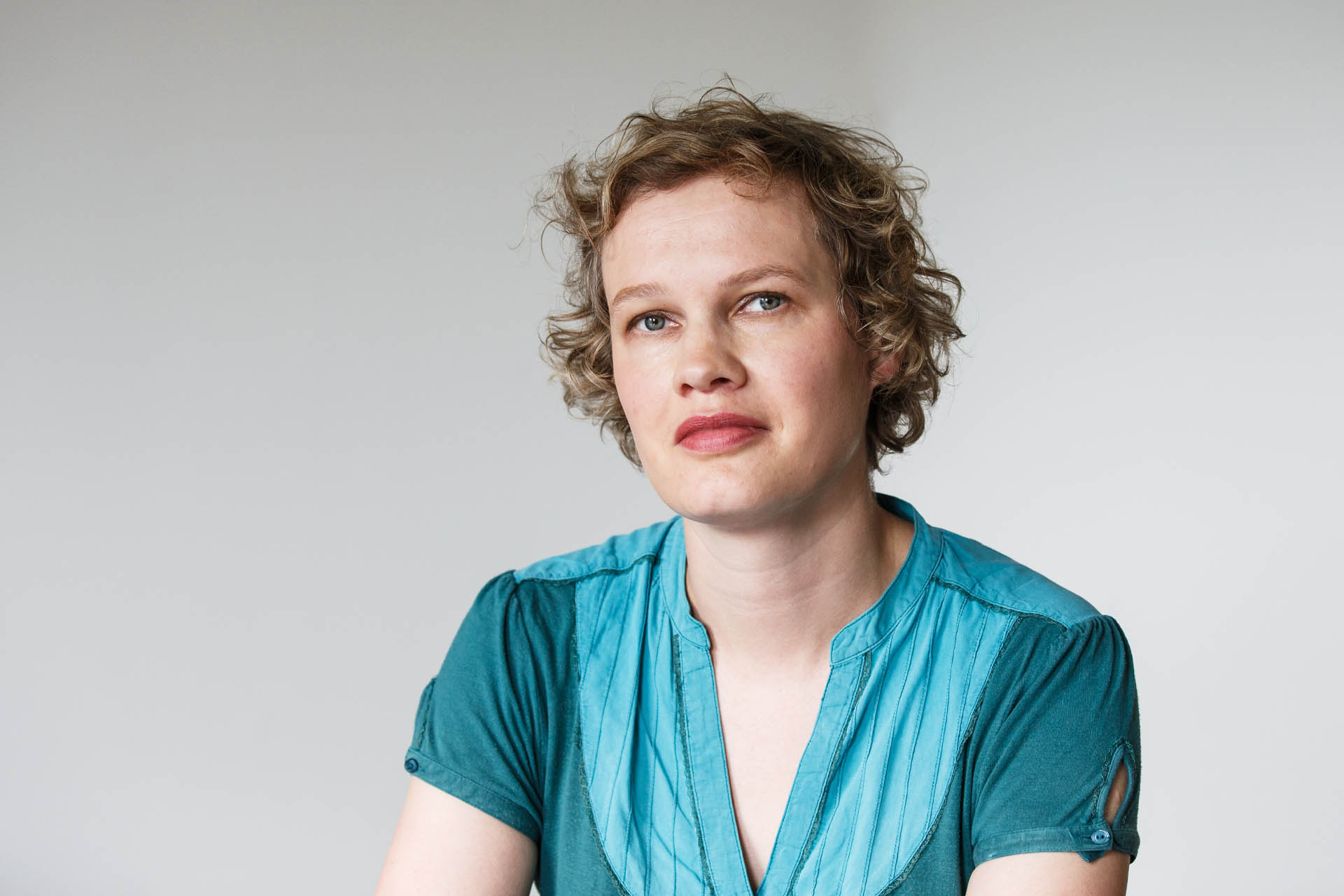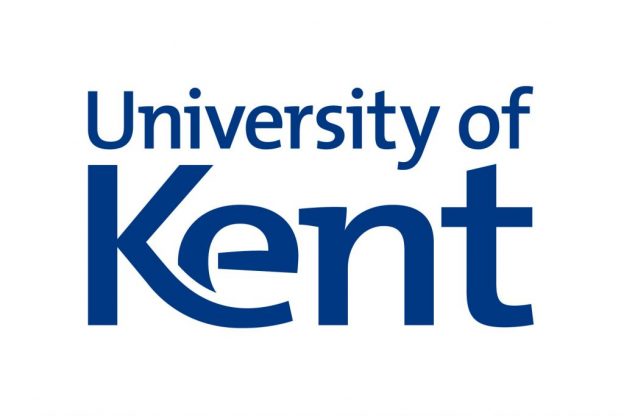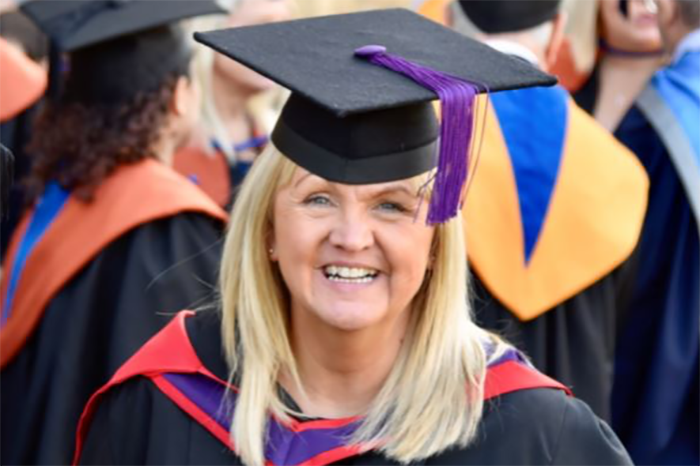Congratulations to Vicky Annis, Kent Sport Physiotherapy Clinic Manager, for completing her Channel swim!
Here’s what Vicky had to say about her big achievement:
Sunday 18 July 2021 will be a day I will cherish forever. The day a childhood dream came true of swimming the English Channel.
I stood upon Samphire Hoe beach at 4am, completely clear of the water, to officially begin this challenge. You could hear the water rippling against the beach and a large horn blasted from the boat, Masterpiece, that was around 50m off shore. I was told to leave all my doubts on the shore and then began making my way to the side of the boat, far enough away not to touch the boat and also not to inhale too many of the fumes. It was not completely dark even at that point and within an hour of setting off, a beautiful sun rise was emerging.
The reason for the 4am start, was to make good use of any slack water, before the flood tide started which pushes you east. I set off at a strong and comfortable pace and began making my journey south easterly. The first section to cross is the English inshore water. As my left hand entered the water, I brushed past something very slimy and warm. It was a little daunting as there was not enough light to know what I touched, but I knew I needed to just keep moving.
Once past the English inshore, I made my way into the south west shipping lane, one of the busiest shipping lanes in the world. I cannot deny I was somewhat entertained by these extremely large ships! The pilots know the exact positions of these ships so I could comfortably take in the views of them passing when breathing bilaterally. These ships were all moving from my left to right and the less I saw, the more I was thinking have I made it to the next zone called the separation zone. The hot sun on my back and the marginal wind made me feel as though I was in a swimming pool at times. One of the main differences is that in a swimming pool I do not have jelly fish for company. I could see a lot of jelly fish and as I looked up to the boat as I breathed, all 5 of my support crew were looking down into the water. My mind was thinking it best just be jelly fish and nothing bigger. I seemed to be so focused that day, that even when the jelly fish caught me on my face, right arm and left leg, I decided that the equivalent of a nettle sting was not going to beat me today.
I began approaching the separation zone and was wondering if I would be able to distinguish my location. The crew kept me updated during feeds, but there are all sorts of discussions about the separation zone that are not all that pleasant. It is known as the central reservation of the Channel, were only the small fishing boats and ferries cross. With such a reduced flow of traffic, there can often be a build up of various substances. During my swim, the main obstacle I encountered was sea weed, which although I needed to pull off my head and neck, it could have been a lot worse.
Half-way there!
In my mind, reaching the separation zone suggested I was around half way between England and France. That is true, but with the tides changing, it does not mean you have the same amount of time to then reach France. The ebb tide began and although I kept swimming strongly, I was being pushed west with some southerly progress. The north east shipping lane was a tough section and what I had not quite realised was the it was not as simple as going perpendicular. It was much more of a diagonal direction which seemed like a life time. You can see France by this point also, which is so difficult, because it is still a long way away.
Due to the strong progress I made in the first half of the swim, plus the ebb tide, I stayed east of the ZC2 buoy. In fact, I did not see it at all. This buoy is 3 miles from France. Having not seen it, I started to wonder where I was and if I was going to make it. On my next feed, which was thrown to me attached to a dog lead, I was told I was soon entering the French inshore water. I really wanted to kick my legs harder, but my hip flexors were so sore. I kept my arms moving and although I should not have done so, I kept having a little glimpse ahead to see whether I would hit beach or rocks. Knowing how sore my legs were, I was not sure rock climbing was going to work! A little while later, I saw the pilot getting the dinghy into the water and that was when I knew we were close. The dinghy escorts you the last part when it is too shallow for the boat. Even when you are within the last kilometre, every stroke counts to get you to the beach.
After 12 hours exactly, I reached France. A little unsteadily, I cleared the water and soon laid on my back taking in the warmth of the pebbles beneath me and looking up to the sky. In that moment, all I could think about was all of the support and encouragement I have received in the build up to this challenge and how fortunate I am.”
Support my charities
If you would like to still donate to Vicky’s chosen charities then please visit her JustGiving page!
